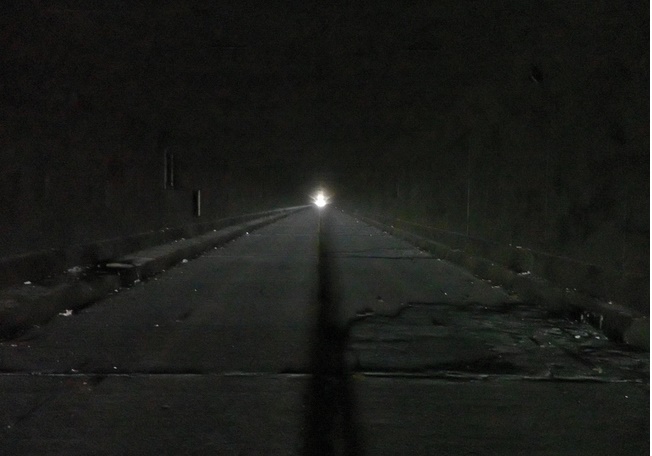By Bill Staufferpa
Working in the substance use service system has always been a challenge. This was true even from its early days. We help people in some of their most difficult moments with few resources to support what they need to get well. We operate under constant triage conditions. Yet despite this, we tend to oversell those shining moments of reward experienced helping a person on their recovery journey to get people interested in taking on the calling of serving people in our SUD care system workforce. Maybe we should instead tell recruitment prospects the truth.
Many of us love this work. We can play a part in people saving their own lives and redefining how they want to live. We witness the immense changes that can occur in ways that change the trajectory of whole families and at times large swaths of the community. Lives are changed in part because of the work we do. This is also essentially our workforce recruitment narrative.
It will be obvious to most that I lifted part of the title of this post from the US Marine Corps. It may seem overly dramatic, but there are parallels at least in one way. The Marines go to where they are needed, when they are needed, whether or not they have the resources to do the job. This is not an uncommon experience in the SUD service environment, particularly in the public sector. We serve because we are needed, often without the things we need to do the job because lives hang in the balance. Triage and improvision are the tools we far too often have to do our jobs. That is the truth for so many of us.
Despite this, we lead with the warm fuzzy good stuff despite the cold hard reality of the work. Perhaps it is not the right way to recruit people for our field. I have come to this conclusion following a lot of conversations with people in diverse settings across our system in recent weeks with a lot of common notes and themes. We need to tell the truth about the work to those who are considering a career in our field. Failure to do so is a set up as fresh-faced workers once they experience what it is really like in the trenches. Vital work that tests your skills and stamina.
Far too often in this era, our workforce is dealing with death in a close up and intimate way, perhaps in no greater frequency than within our peer workforce. In the age of Fentanyl and Xylazine, care is more complicated, recovery efforts more challenging and the risk of lethality dramatically increased. I was unable to find much in respect to SUD treatment protocols or recovery engagement strategies beyond withdrawal management for this new trend. Front line workers with direct experience have shared with me that persons using these drugs together are more challenging to engage in a change process. This is also historically the case as academic data lags practice as new drug use patterns unfold. But in this I am hopeful.
I know that history shows us that it is these same front-line workers who will find practice strategies that will help improve outcomes over time. Every prior emergent drug use patten has shown us that it is our frontline workforce who figure things out in ways not unsimilar to how Mobile Army Surgical Hospital workers learn to improvise in the moment and adapt to save lives. Grim, challenging, and imperative work that does not translate well to a feel-good recruitment campaign. Such work is not for everyone.
The work takes a toll on you. You see and experience traumatic things that will stay with you for the rest of your life. Resumption of use can be a risk, as can be experiencing high levels of stress, secondary trauma and even potentially the risk of physical harm. All far too often for less money and longer hours than slinging burgers.
It is a space ripe with snake oil sellers, hustlers and hucksters. Also not a new trend, they have been around well before the era of the “Keeley Cure” which included gold injections to cure alcoholism that became popular a millennia ago. All the resources to address our current crisis have brought out a host of these kinds of people promising solutions marketed in the most appealing ways. They often find their way to the front of the line because they offer compelling and simple solutions to situations that in truth defy such simplicity. It can take awhile to play out as they burn through resources. All of which can be quite disillusioning for people seeking to do this work for better reasons than to make a lot of money or to become a guru. We need recovery custodians dedicated to hard work, not rockstars who burn bright and far too often leave us with more devastation and fewer resources when the inevitably implode.
Other long-term challenges in our field are being exacerbated by our current circumstances. High quality, consistent supervision has always been a challenge perhaps in no small part to the triage dynamic of the work. Supervision while under fire often seems secondary even as it is critical. Supervision is getting even harder to find due to the increasing loss of experienced workers. Experienced workers are retiring, giving up on the work due to the mountains of paperwork and incessant bureaucracy or simply taking jobs that pay more, which includes most other types of work without regard to training, educational level, or experience. Often for more pay, fewer work hours and lower stress. I cannot recall a conversation with seasoned colleagues in the last year that did not include the myriad of reasons to just do something else, yet many of them carry on. Yet attrition is occurring, which leaves fewer mentors for less experienced workers who far too often are learning through trial and error.
It is important to understand that most everything in this piece was true 20 years ago but we kicked the ball forward. Over the decades policymakers struggle to prioritize needs without the capacity to meet the ones on the table. They have been constantly challenged with triaging the crisis of the moment with limited resources to address anything not on fire. Workforce development has consistently seemed to be the thing we will address tomorrow when the current crisis ends. There is always a new crisis.
Because of all of these dynamics, it is also true that recovery far too often occurs despite our care system and not because of it. Our systems have long been designed to deliver band aids instead of habilitation and long term support. We provide comfort care or short-term treatment in ways that deliver people back to our front doors or an early grave and not long-term recovery, which remains not much more than an afterthought. Our workers far too often find themselves working in systems of care that don’t work. Helping people heal in these kinds of environments takes a lot of courage, stamina and can at times feel like an act of defiance.
Pointing out these truths in our systems can be dangerous. Far too often truths are uncomfortable, and a lot of energy can be consumed across our systems of care avoiding them. Newcomers to our system often learn this the hard way. They point some things out that become evident to them doing the work on the ground and get swatted down by the system. This is perhaps no truer than for recovering people with the asset of lived experience being eclipsed and discounted due to the deep sense of unworthiness and distrust our society has for people who have experienced addiction so pervasive in our healthcare systems and beyond. There is also an inverse relationship between resources and proximity to the problem. The closer to the street you are the less resources and credibility you have, while the money and answer people are far removed from the reality of real-world conditions. This too is because of stigma.
So when all else fails, perhaps we should tell the truth. It is not a job; it is a calling, and not an easy one. We do this work because it is vital, not because it is easy or that everyone we work with has a fairy tale outcome. We are simply not working in that kind of environment, and even properly resourced the gravity of the work is life and death, not the thing of fairy tale endings, at least our modern versions of them. Despite it being hard and far too often done in the face of stiff headwinds and a sea anchor fastened to our stern, we push forward. We do so because we must.
The final irony is that when our efforts fall short because we are under resourced and meager resources are rationed out like thin gruel, it gets played as the clients are failing or our workforce is failing and not that we were never resourced to succeed but instead to triage. This is true for any highly stigmatized condition, but perhaps none more so than ours.
If we tell the truth about how difficult it really is, perhaps it will draw people in who are more intentional about why they want to serve our communities in need. And perhaps with such truth telling we may actually end up helping us address these systemic challenges in ways that things actually do change.
To those of you out there who get up and do the work knowing the above truths and do it anyway. I salute you.
And for those who think you can navigate all the above, the hardest job you will ever love, we welcome you. We need you!
Source: https://recoveryreview.blog/2023/04/15/the-few-the-proud-the-under-resourced-our-sud-workforce/


